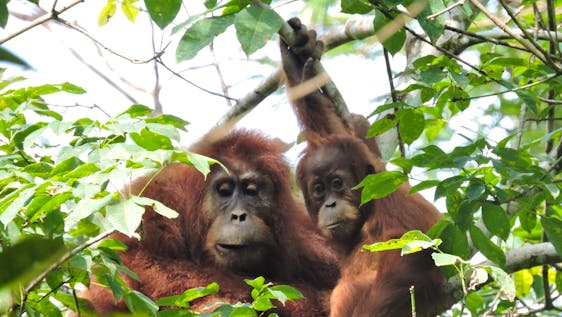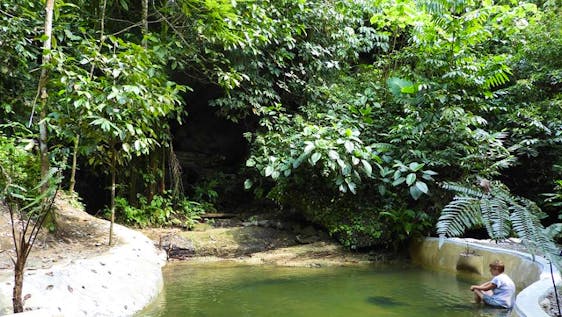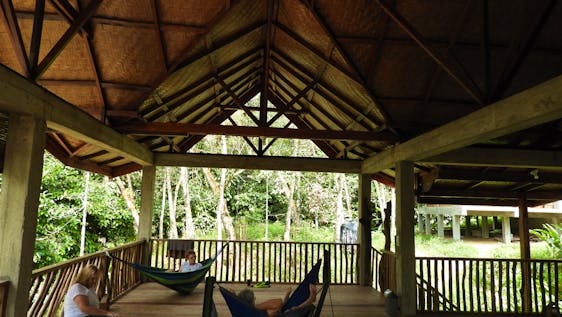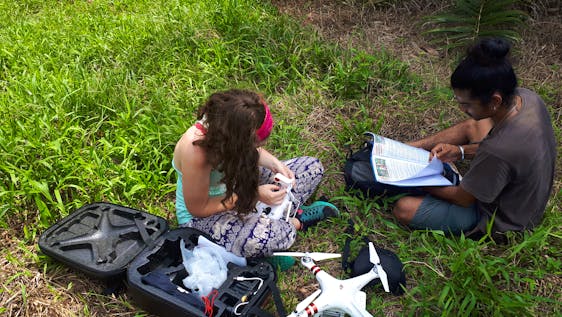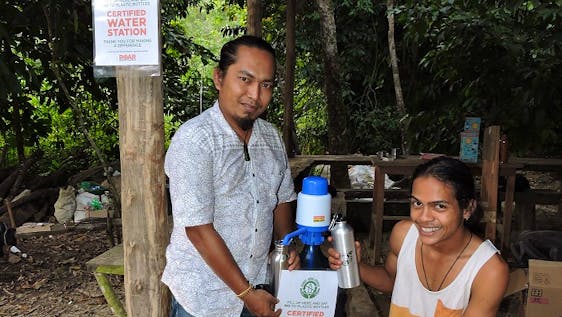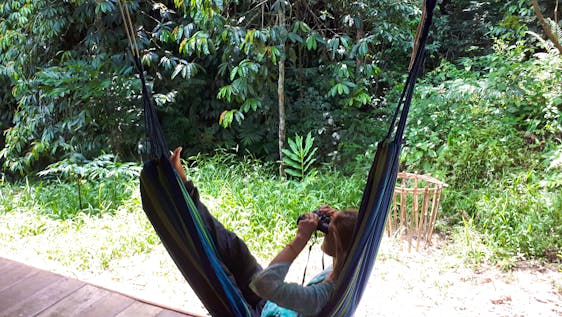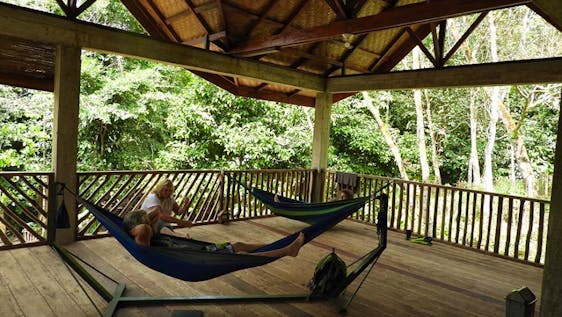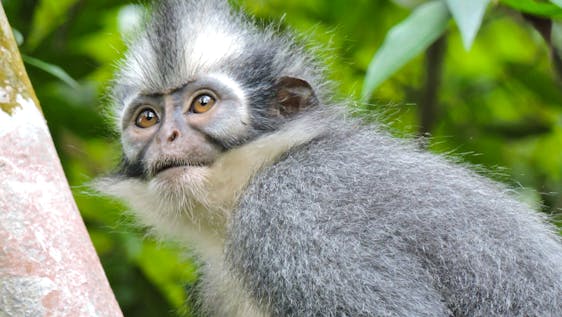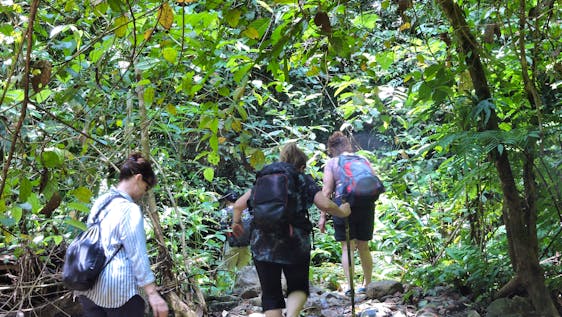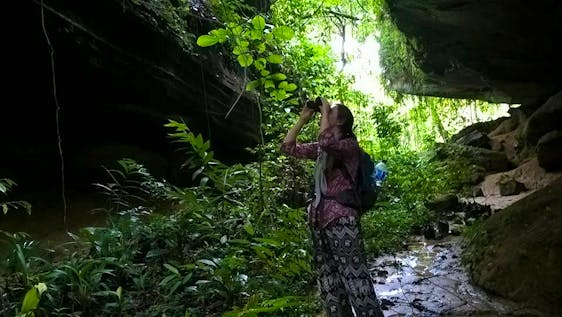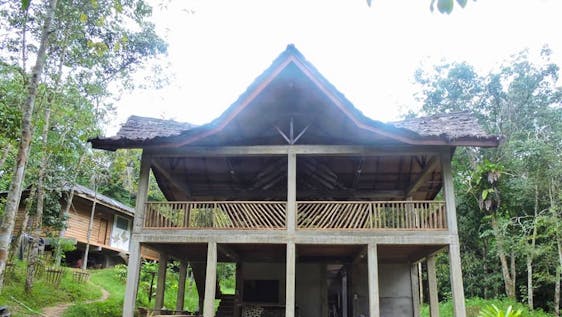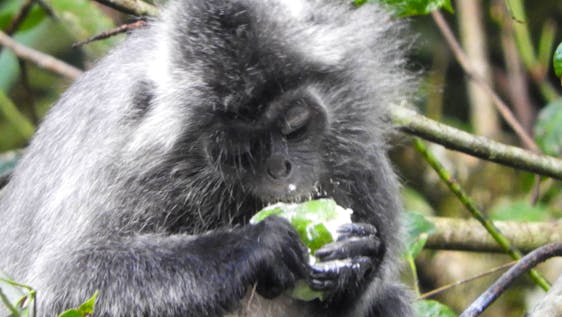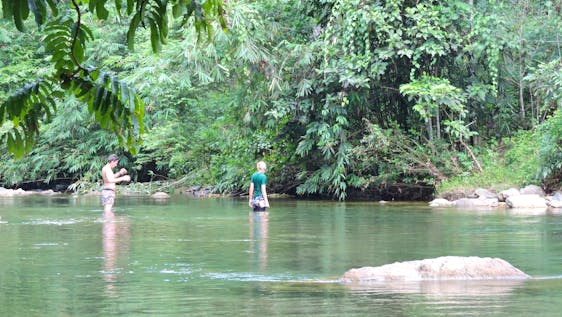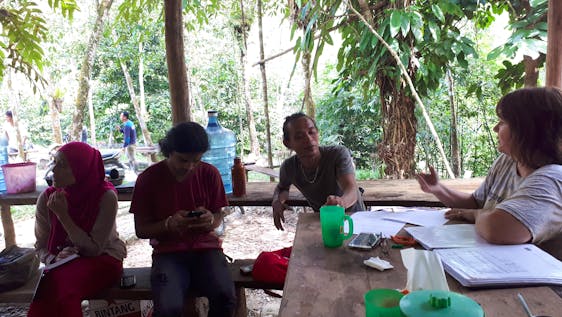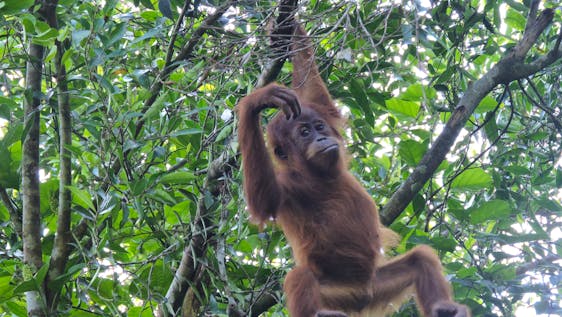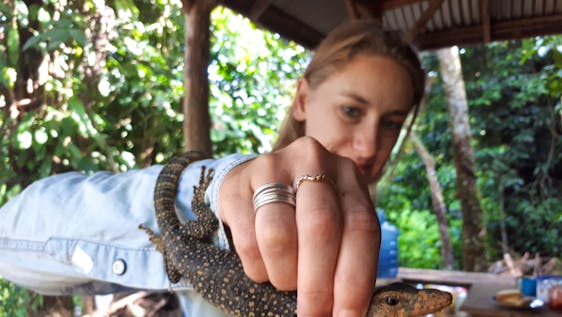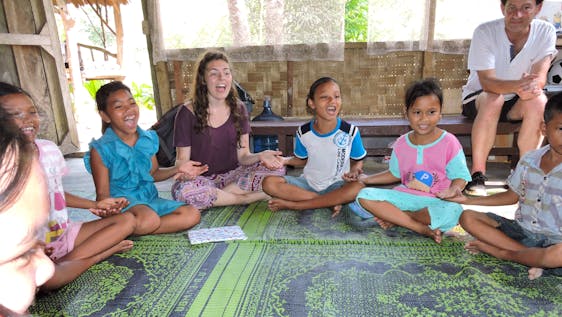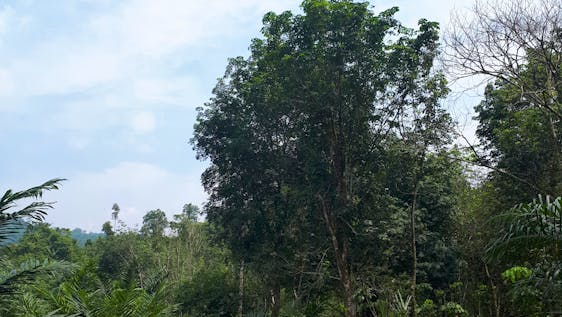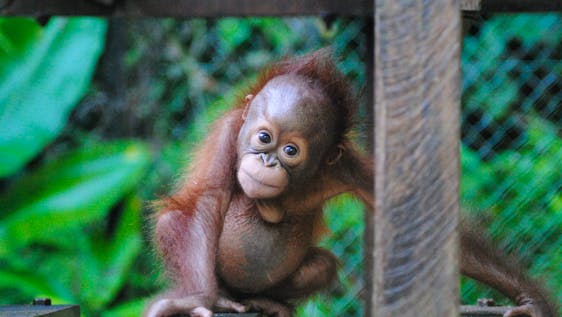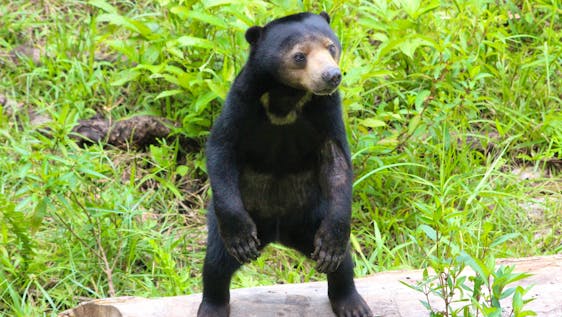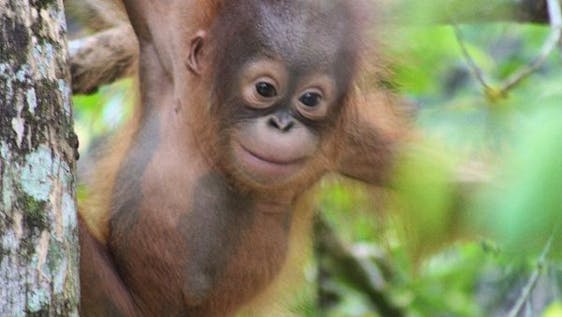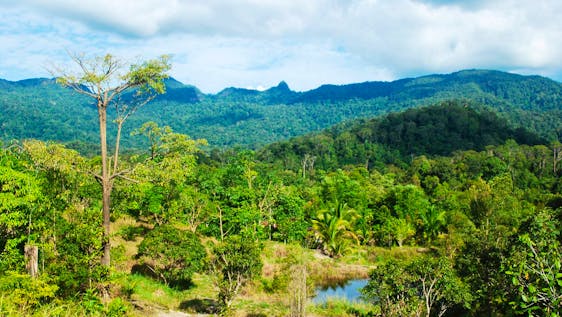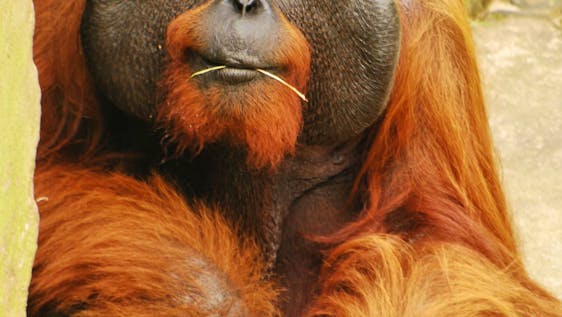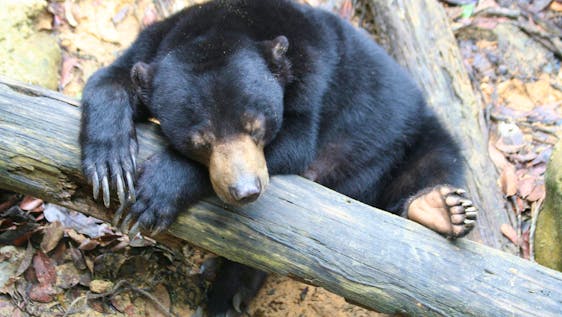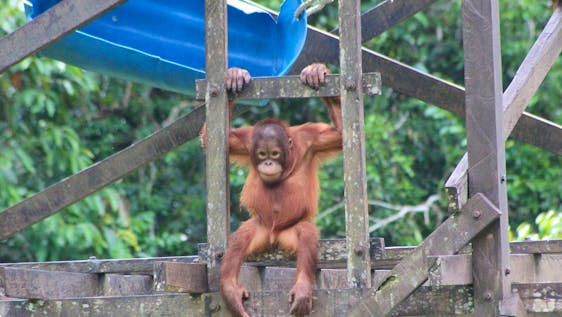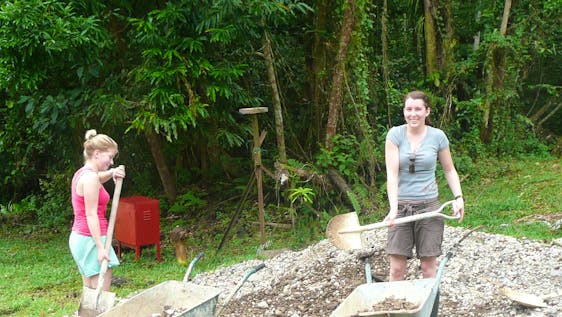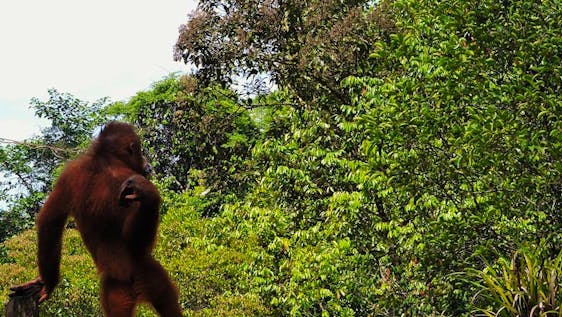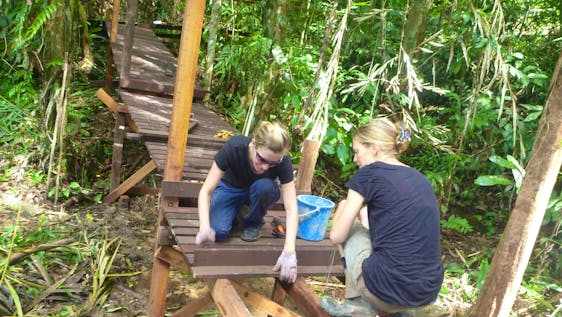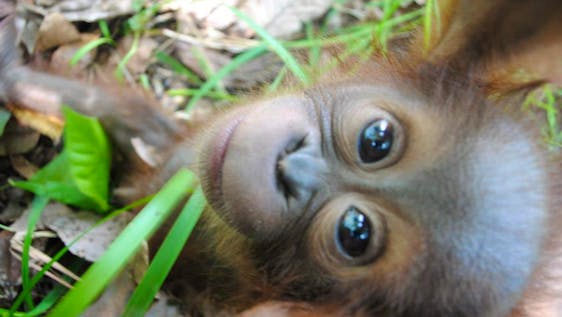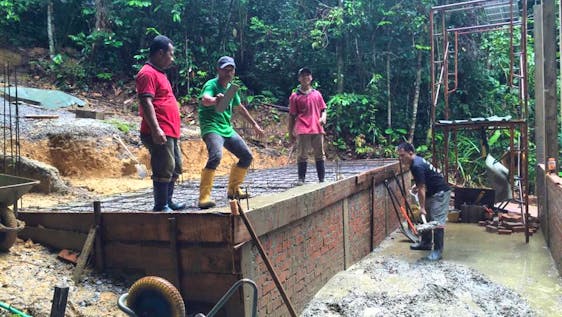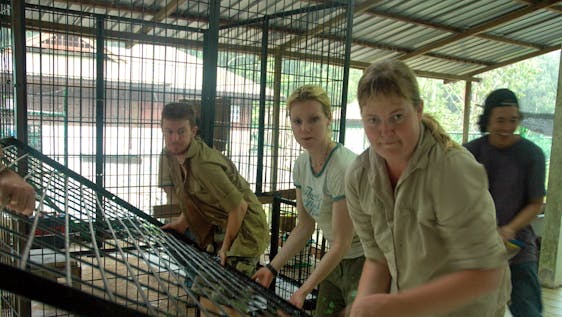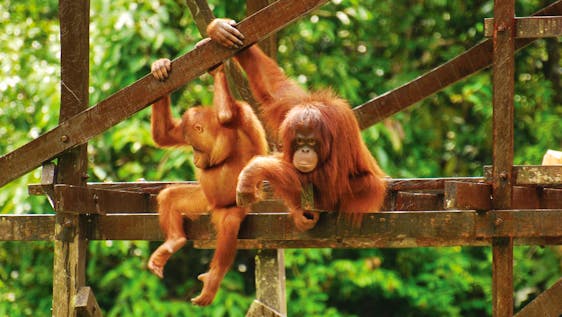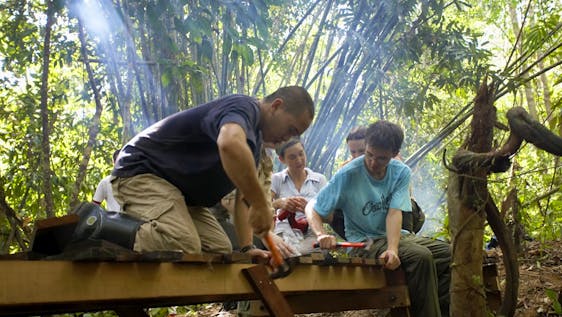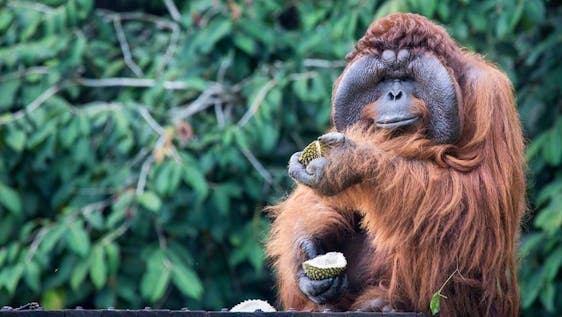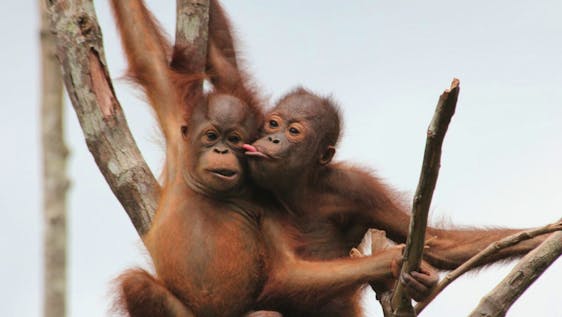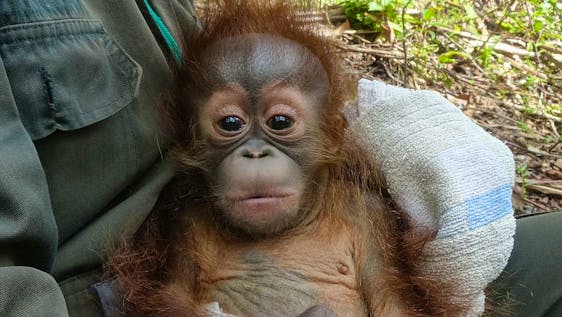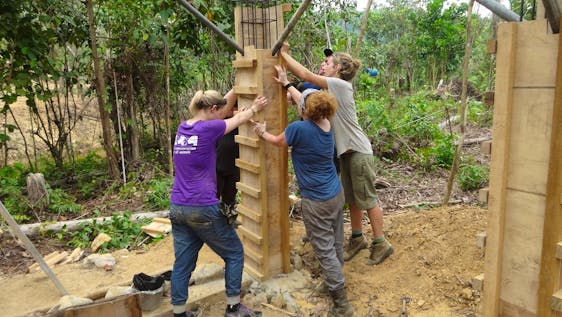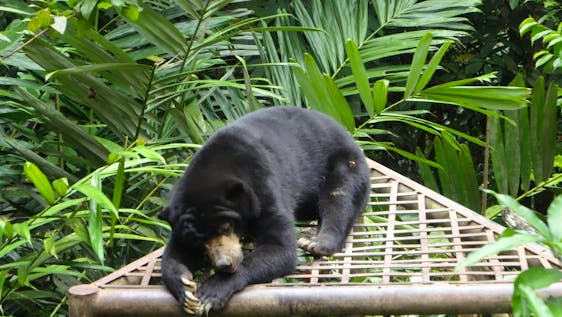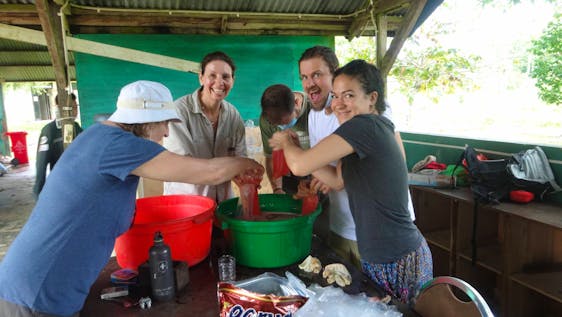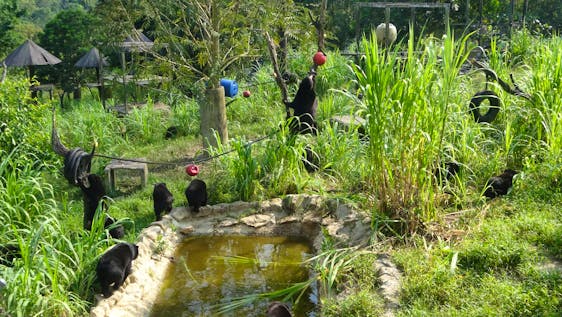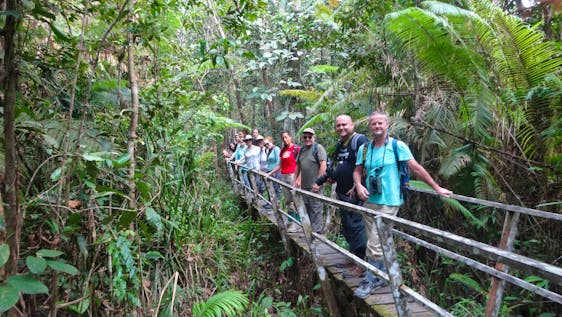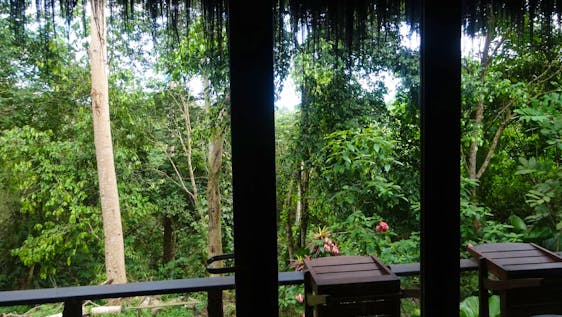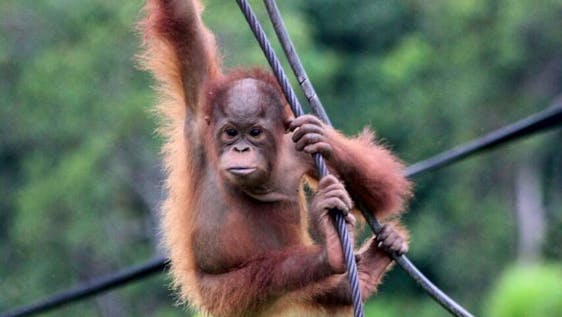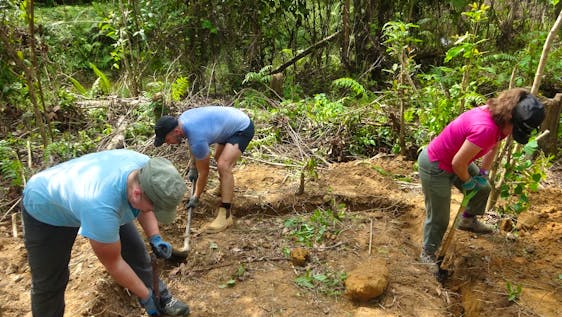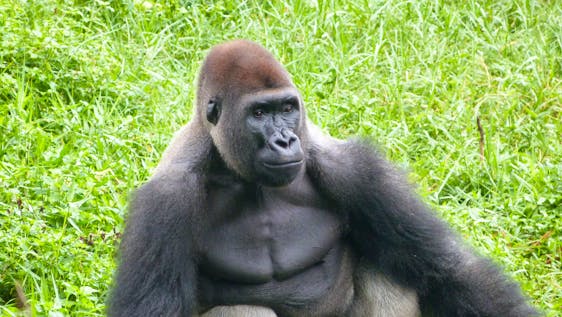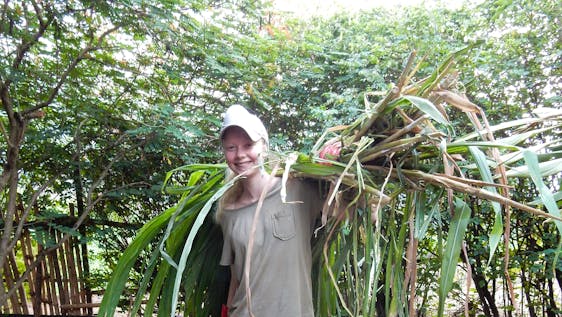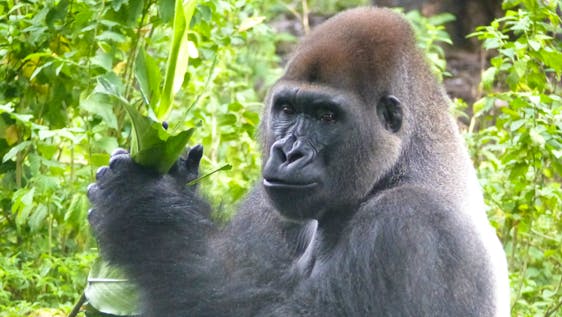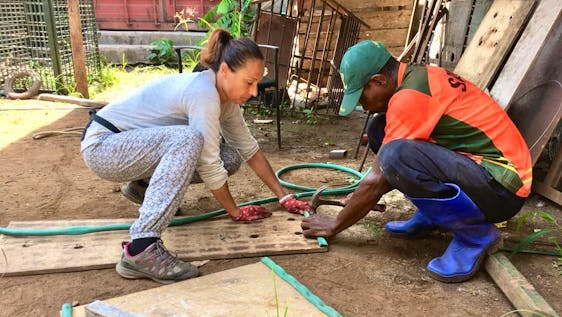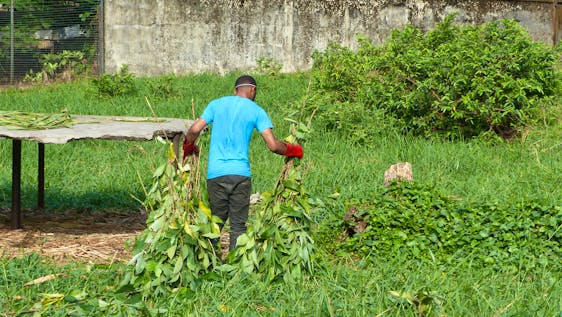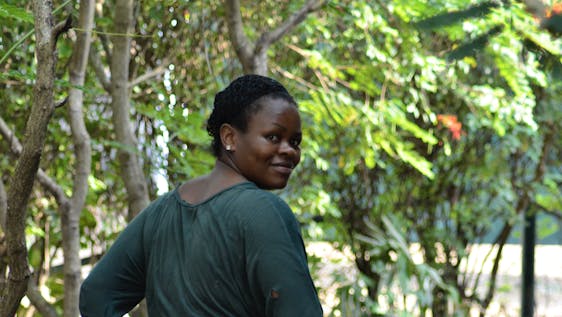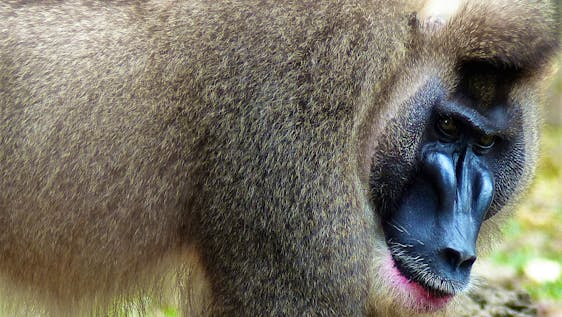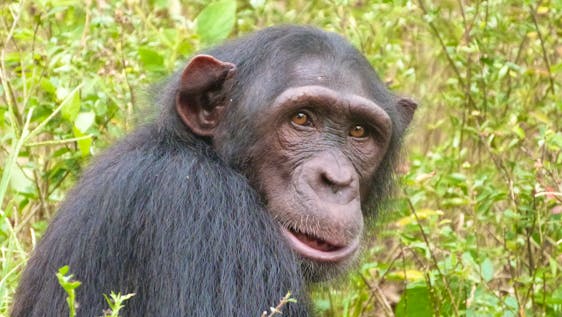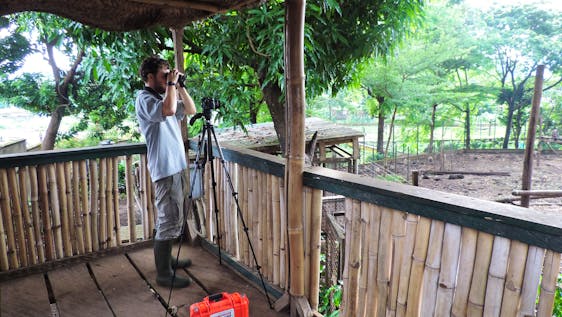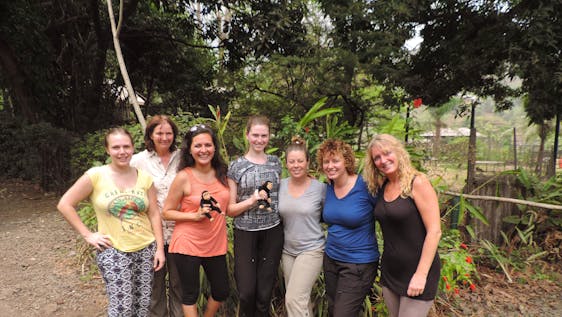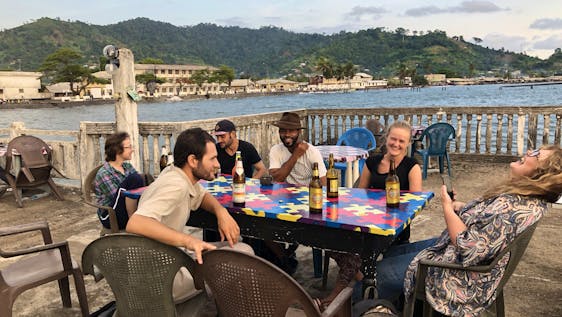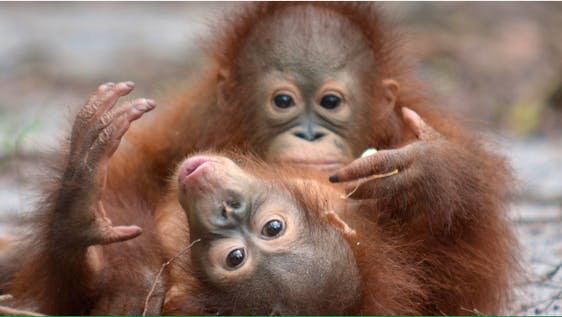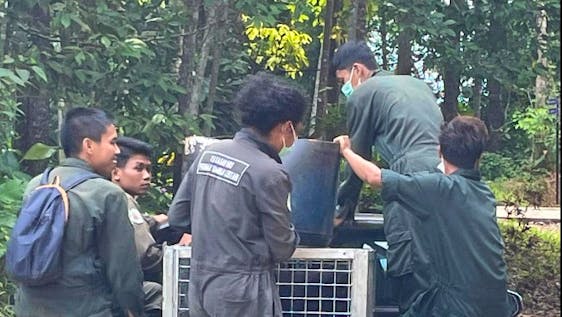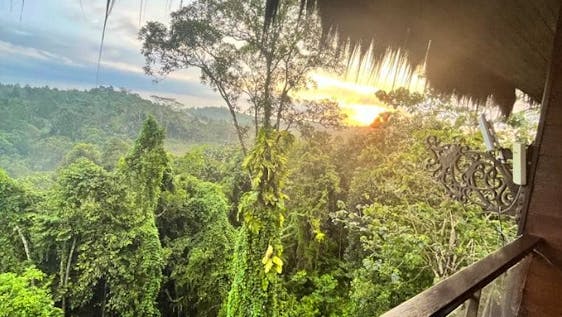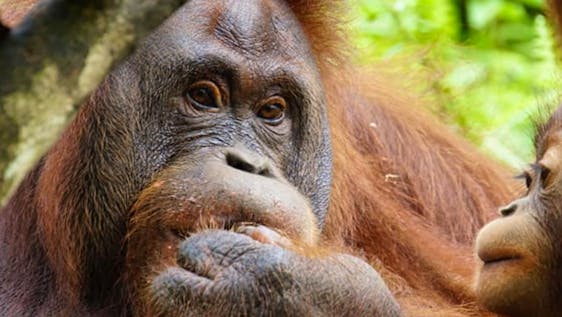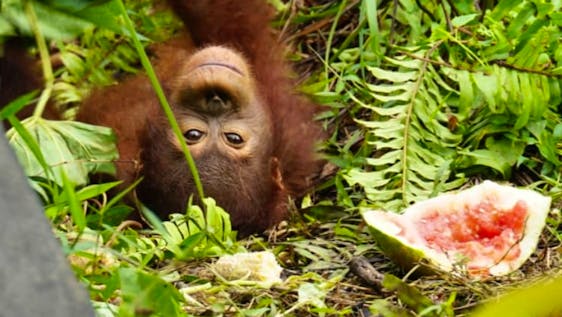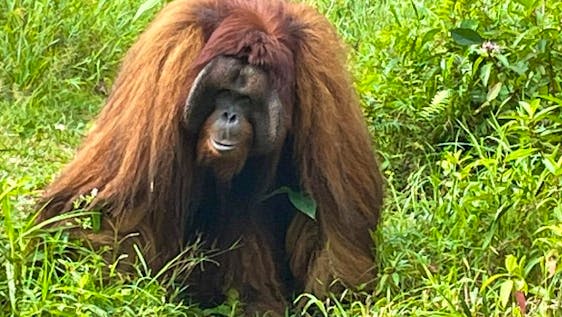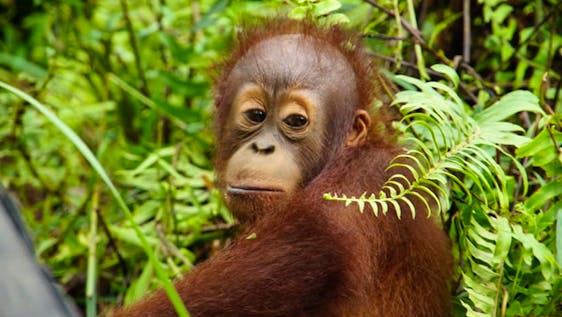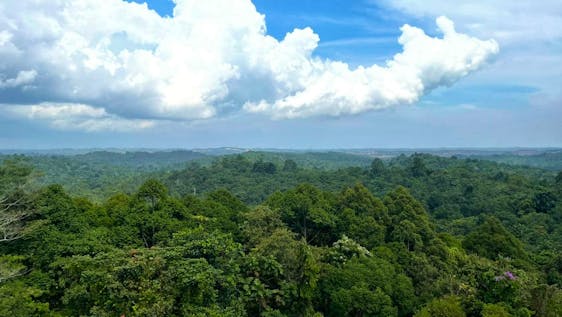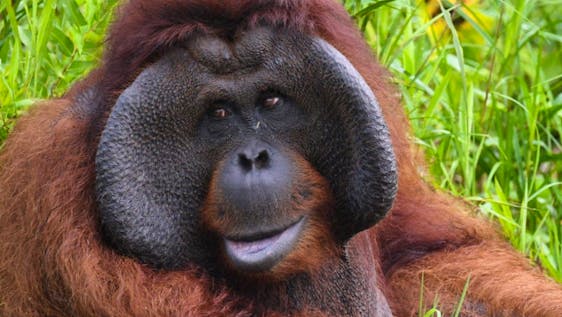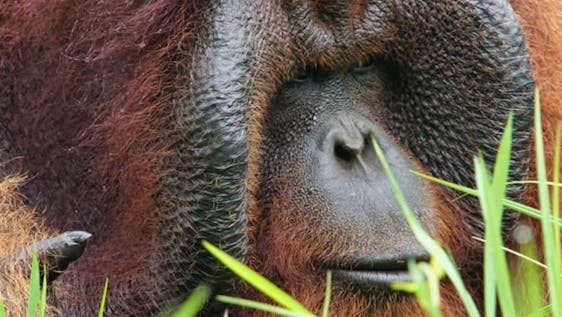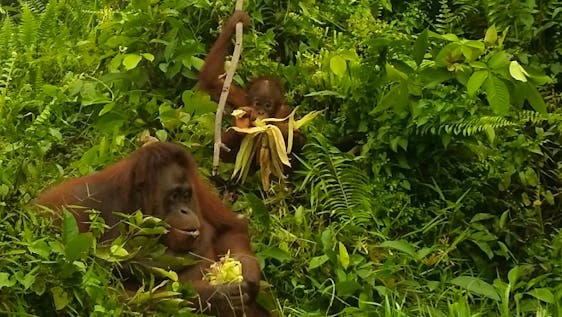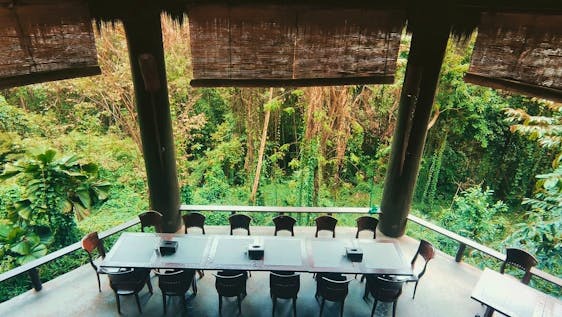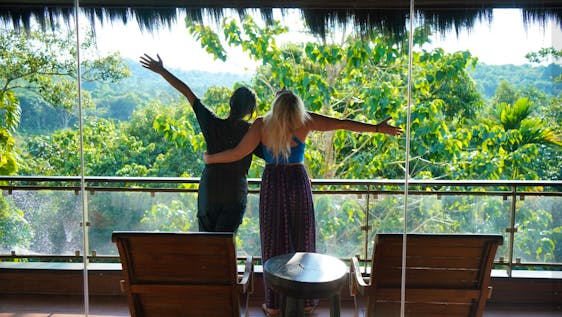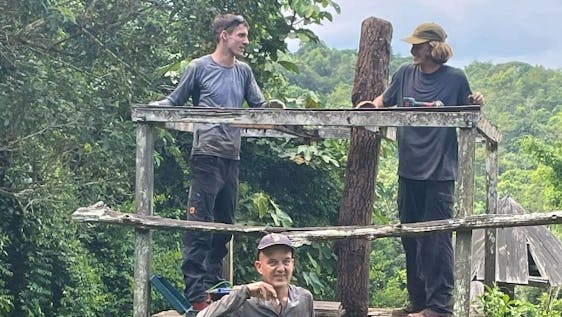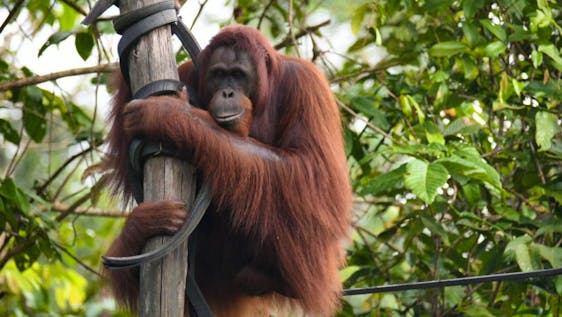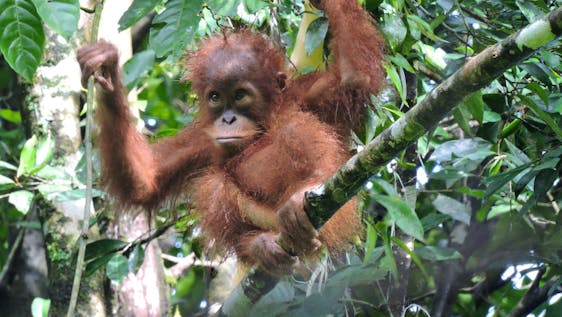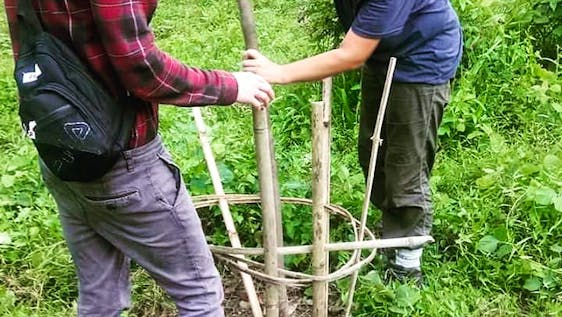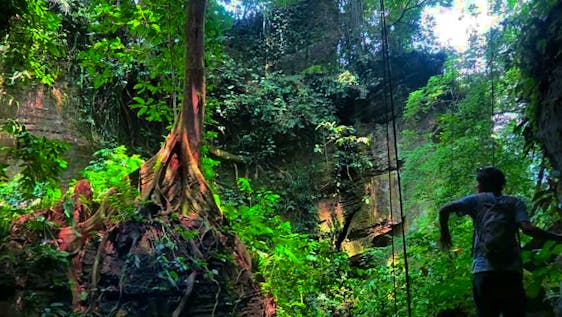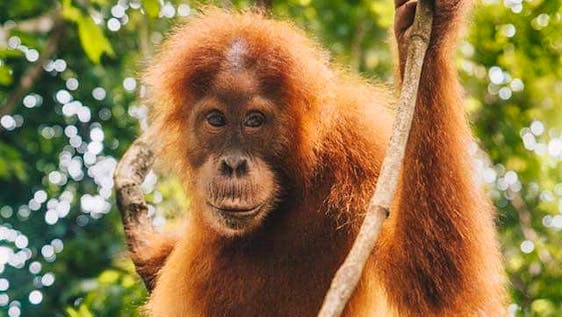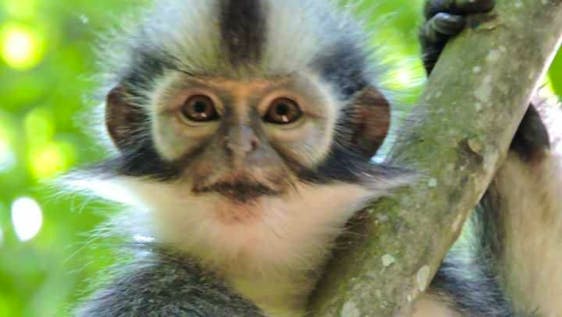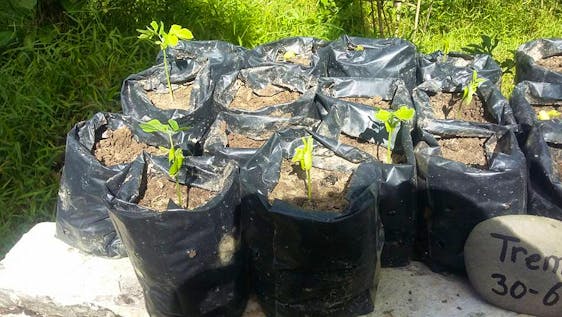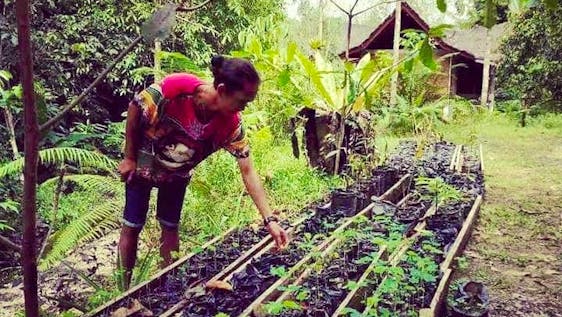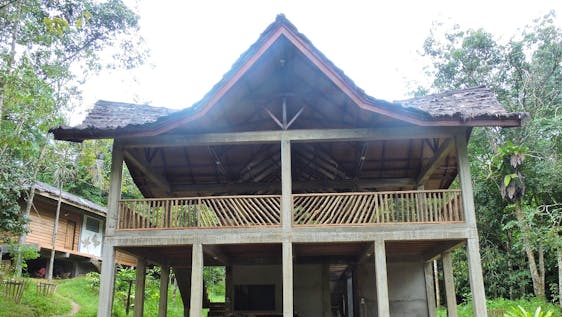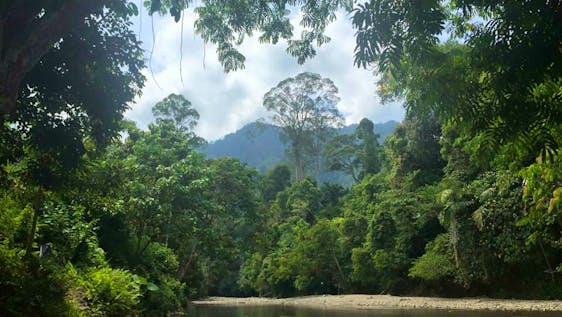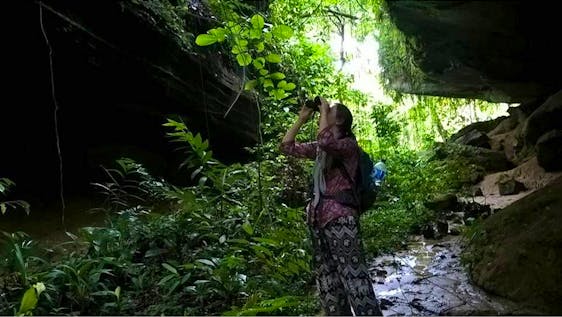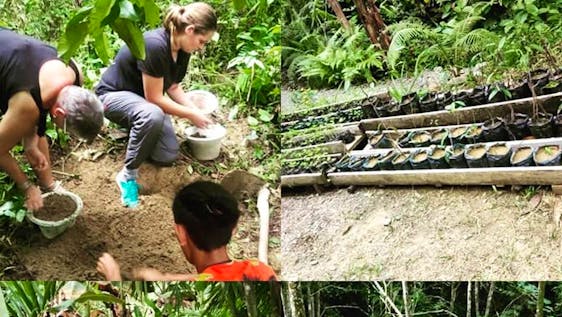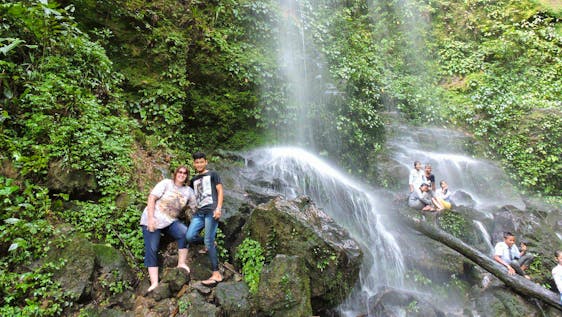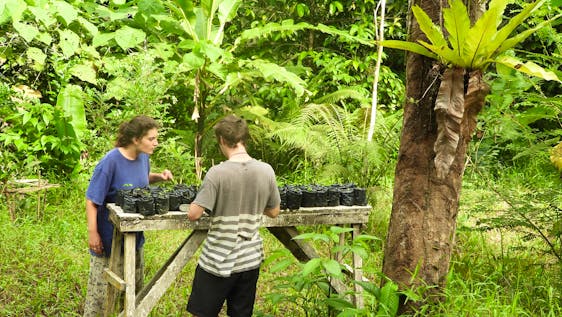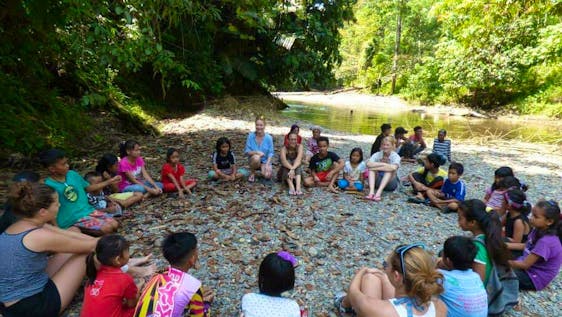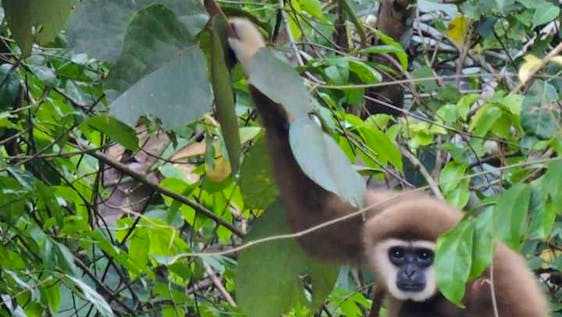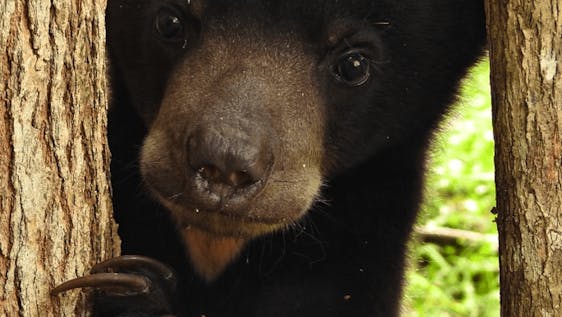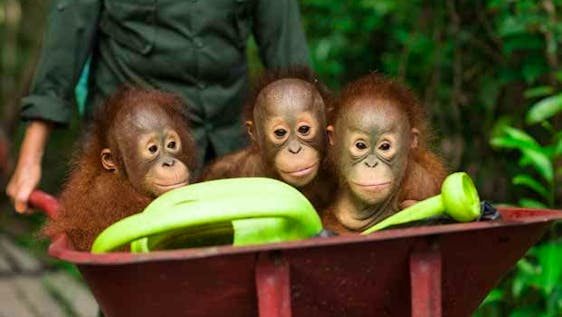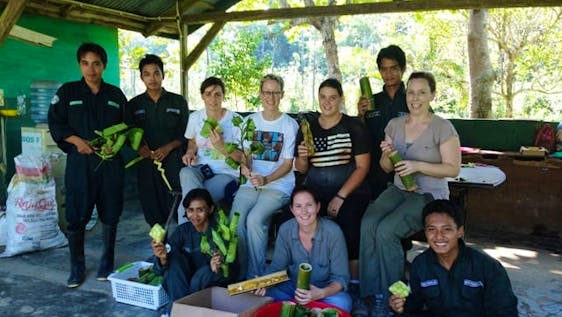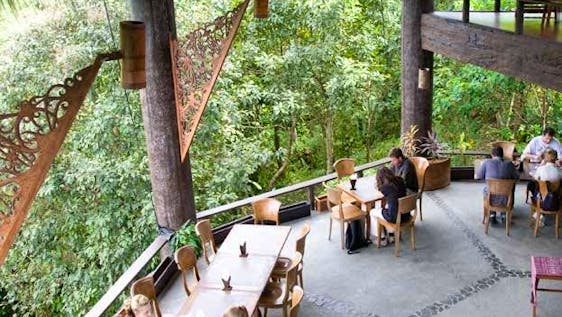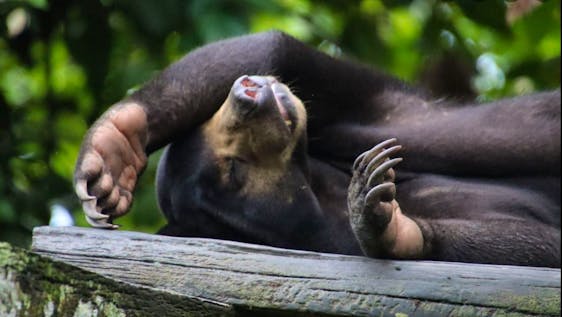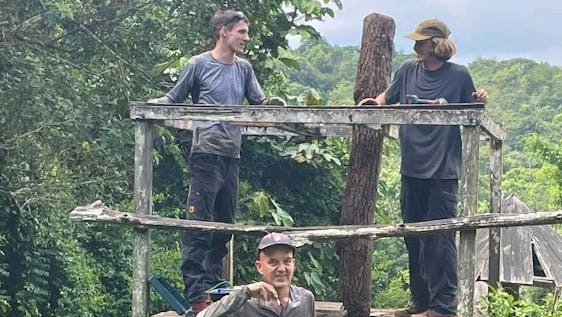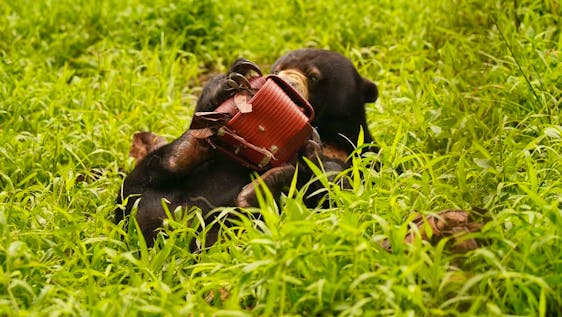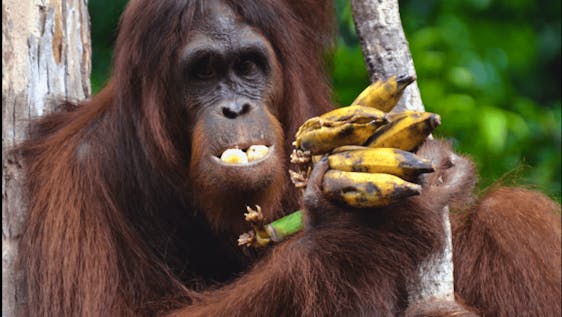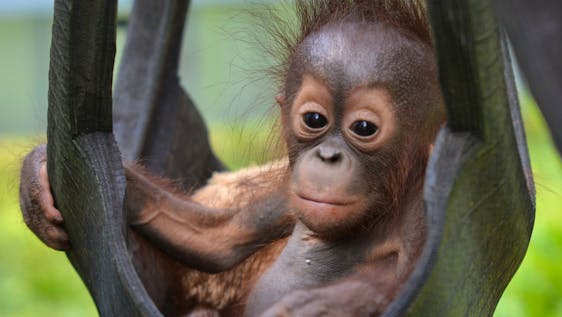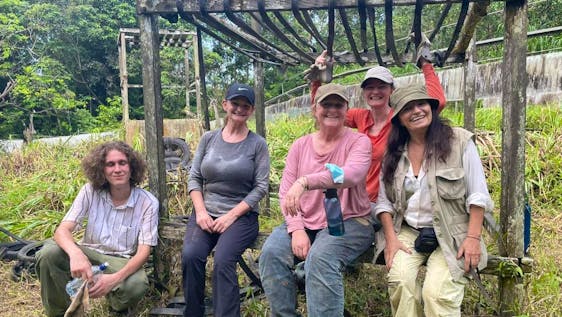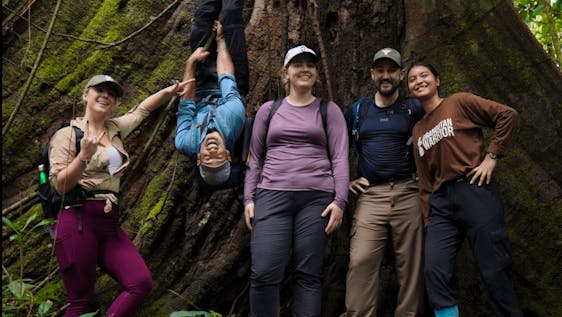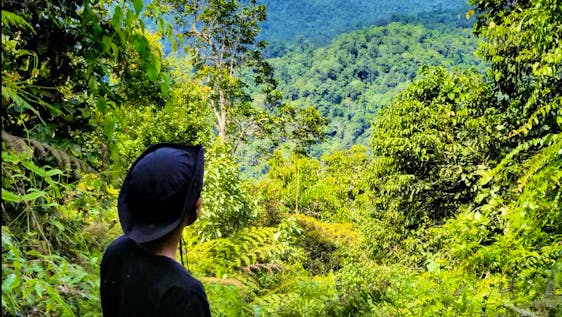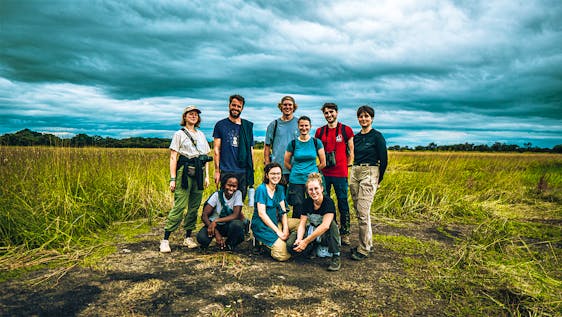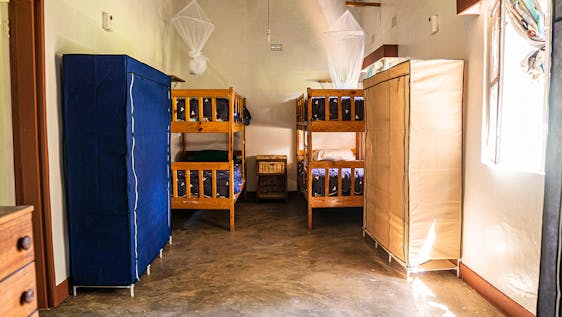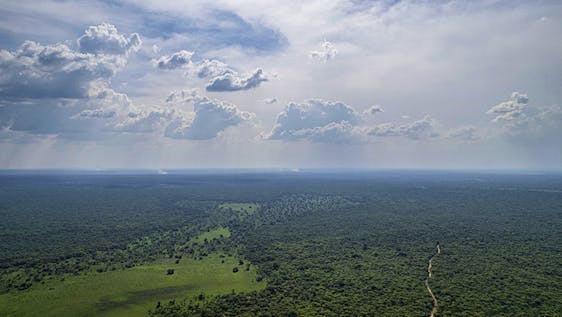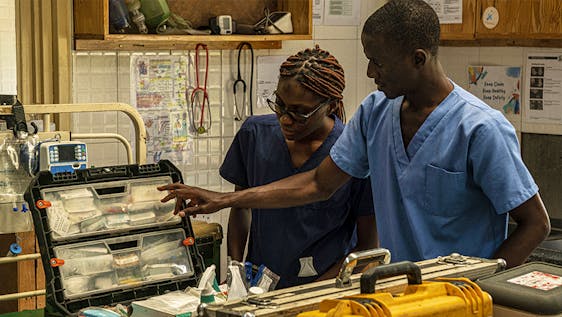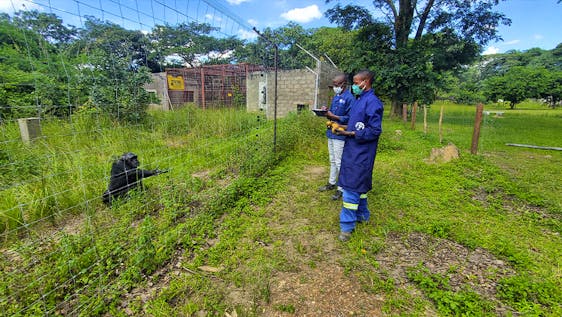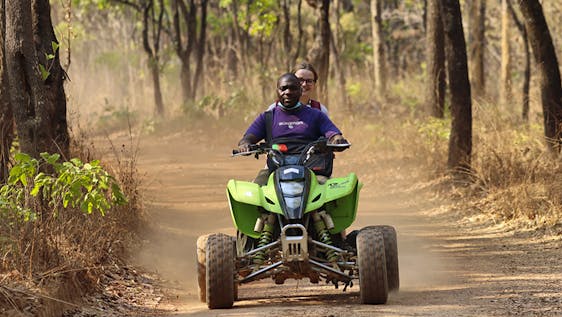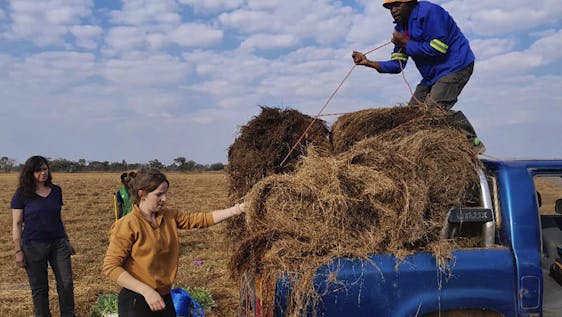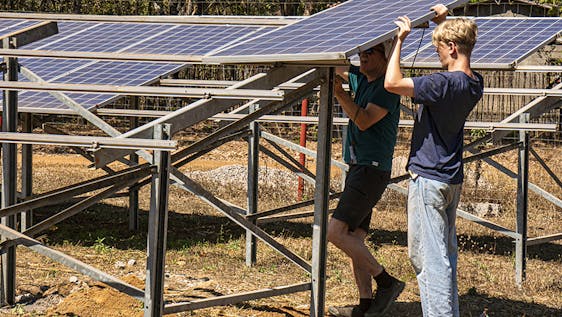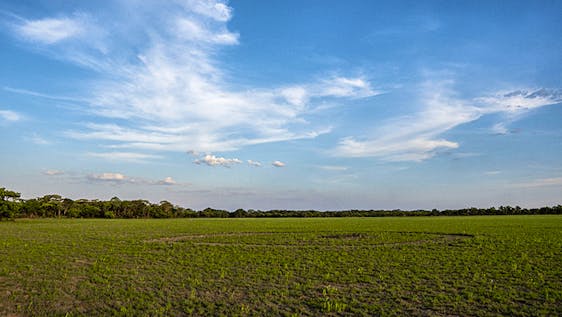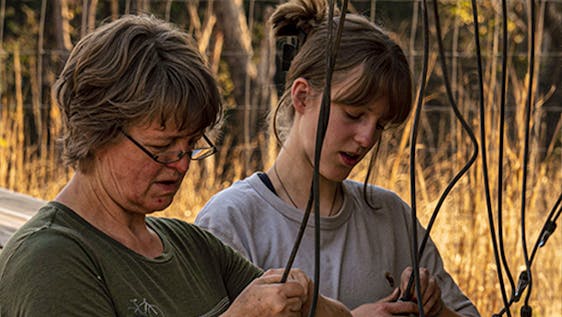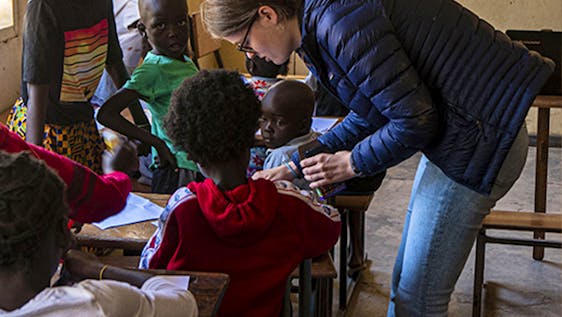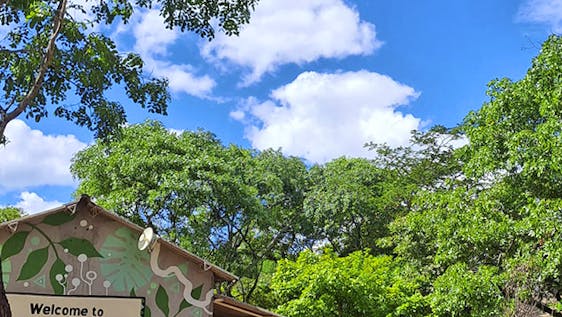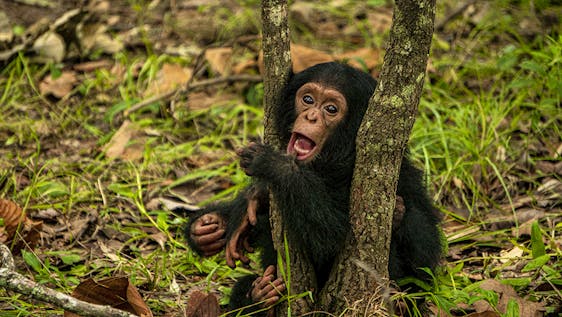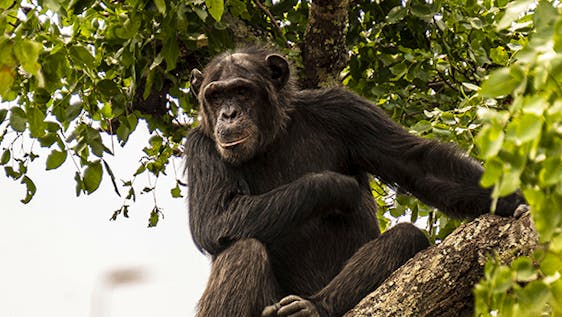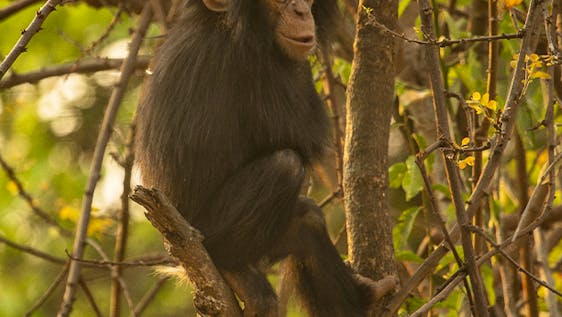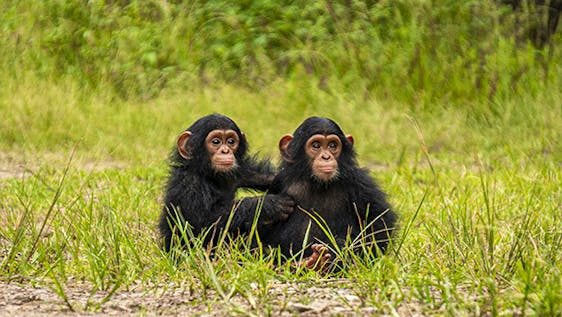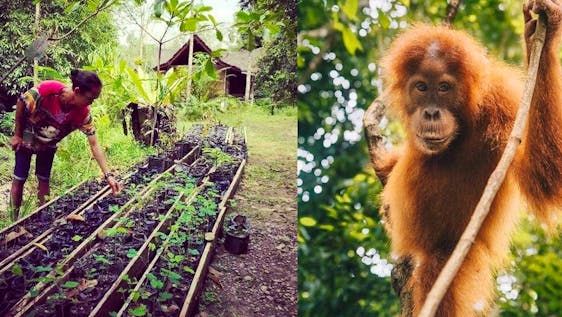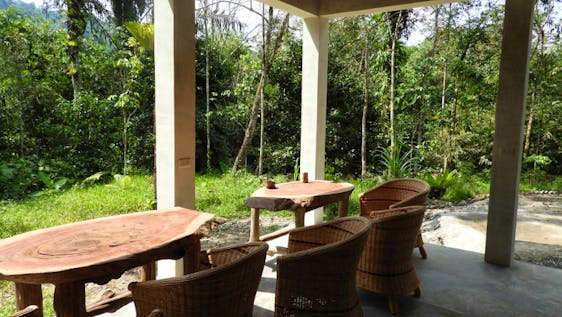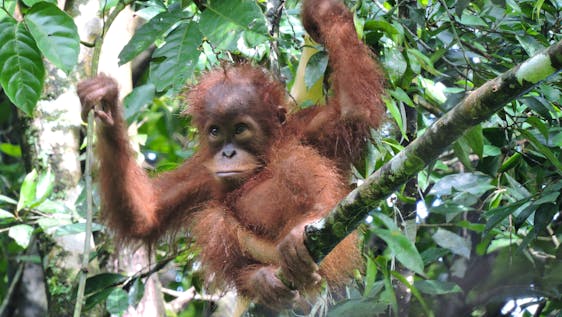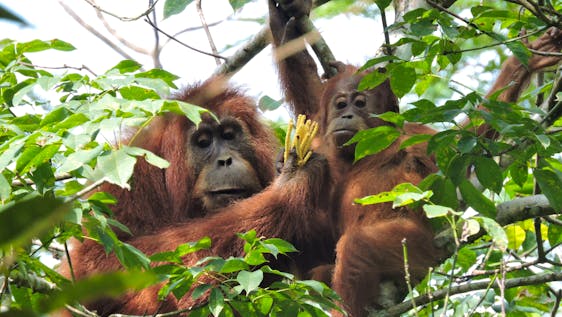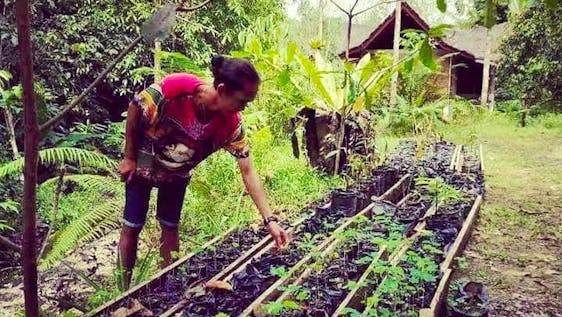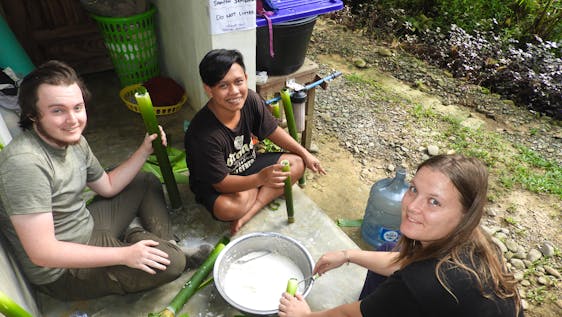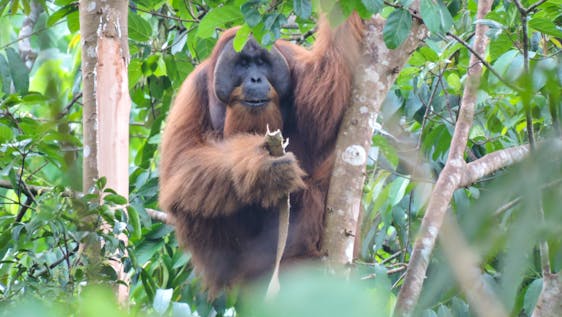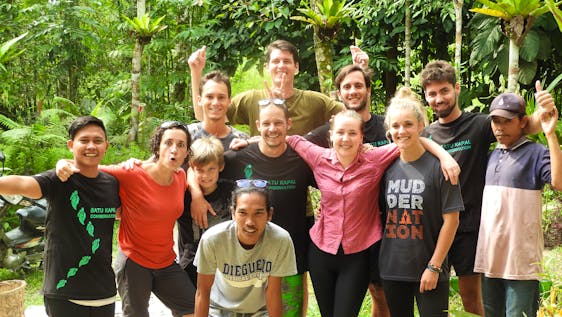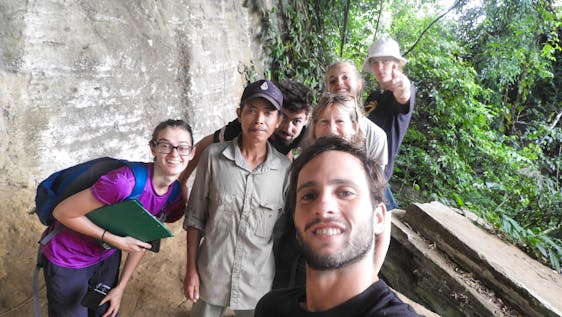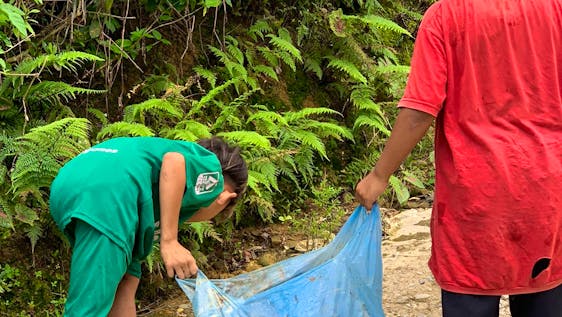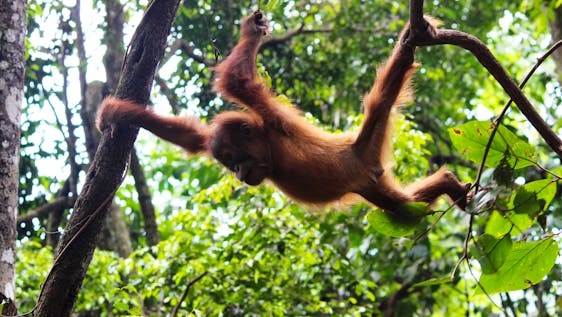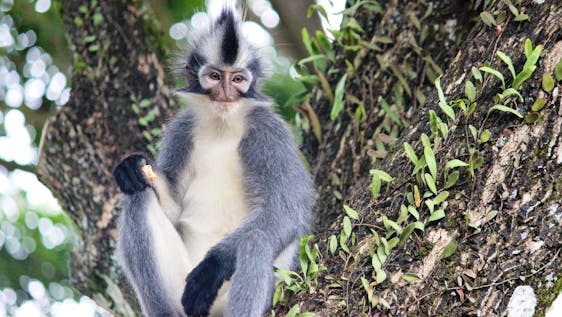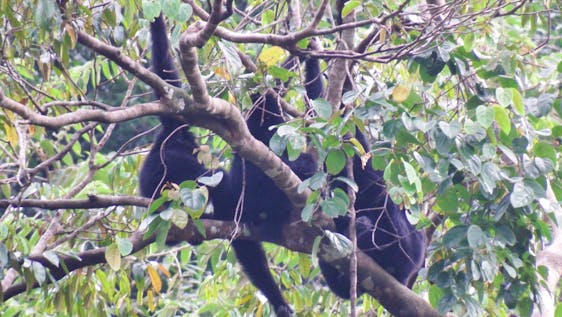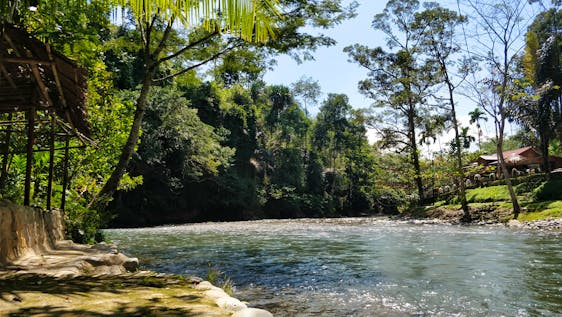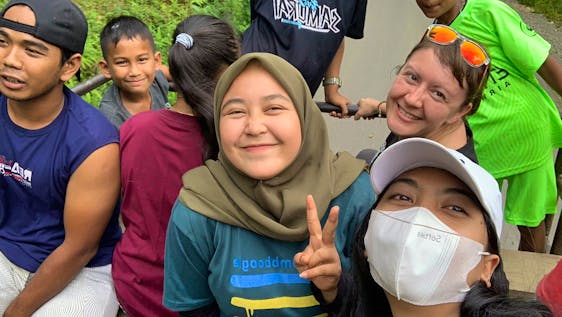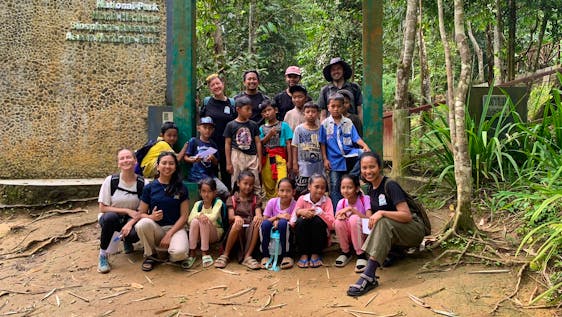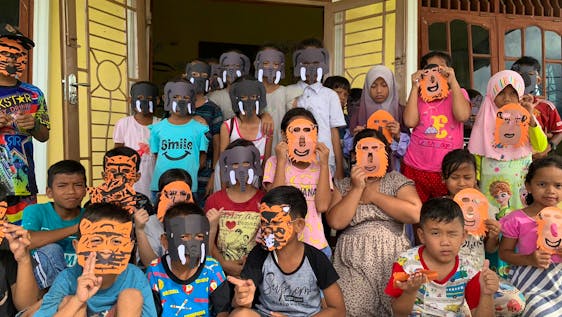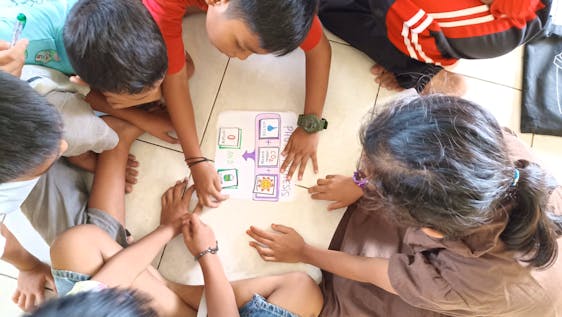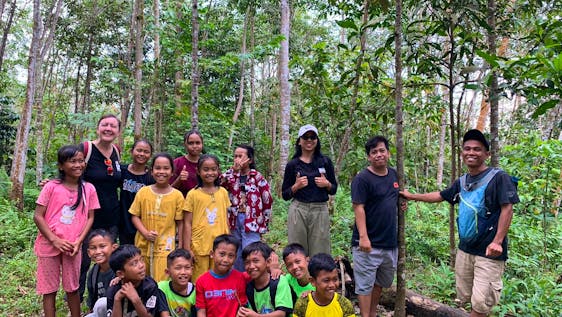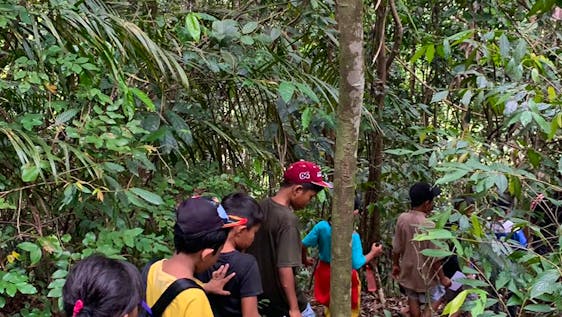Volunteer with Great Apes
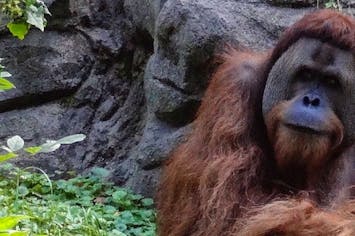
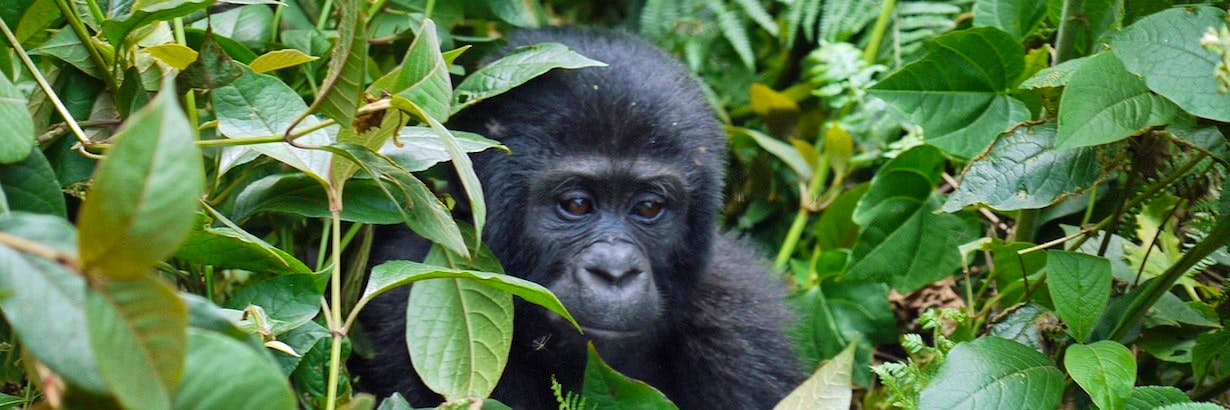
Volunteer for Great Apes Projects
Volunteer with Great ApesBonobos, Gorillas, Chimpanzees, and Orangutans are our closest relatives in the animal kingdom. Unfortunately, their population is dwindling with some species facing extinction if no action is taken to save them. Are you adamant about preserving endearing baby orangutans, mischievous chimps, and impressive gorillas and just as eager to roll up your sleeves?
Great ape projects in South America, Africa, and Southeast Asia are waiting for passionate volunteers to help with rehabilitation and conservation efforts. Are you intrigued by our furry relatives? Excited to discover some of the most remote destinations? Pack your bags and volunteer abroad. Join a sanctuary and rescue the endangered great apes. Welcome to the jungle!
Great Apes Conservation Status in 2025
Apes play a very important role in the jungle or forests of Africa or Asia which they call their home. They can be described as the gardeners of the jungle because they spread seeds across the forests they inhabit. The way this works is that the seeds of the various types of vegetation they eat, pass through their digestive system and are scattered throughout the forest.
Apes are grazers, eating a lot of vegetation and maintaining a natural balance in the food chain. Without them, there would be an imbalance in this food chain which would affect other wildlife living in their surroundings. All animals play a vital role in the environment and it’s important that they can continue to do so.
Why are Great Apes endangered?
The majority of the great ape species on our planet are at risk for extinction while more than 70% is declining in population according to IUCN. You may be wondering what is causing these dwindling numbers and what we can do to save our friends.
Climate change
First of all, climate change has a serious impact on apes as temperatures and rainfall start to vary greatly in their natural habitat. While the world continues its economic and industrial expansion without maintaining an ecological balance, more species will continue to become extinct. The great apes are powerless against the impact of the human race in our world. Something needs to change.
Logging, mining and palm industry
An important factor in the decline of the gorilla, orangutan, chimpanzee and bonobo is the logging and mining industry. The elimination of trees for the logging, mining and palm industry is continuously taking away more and more of their natural habitat. Local communities living close to forests are poverty-stricken and desperate for income. Unaware of the immense environmental impact this has, they continue these harmful practices.
Poaching and Bushmeat
Considering our modern times, one would think hunting and animal trade would seem a thing of the past. Unfortunately, there are people willing to pay exuberant amounts of money for exotic pets. Money remains a huge motivation for poverty stricken local communities to poach them. Bushmeat (the consumption of wild animals) which is illegal, has turned into an industry in regions like Africa and Asia. Consumption of bushmeat from tropical areas not only poses a threat to the biodiversity but is also a big risk regarding the spread of tropical diseases.
Disease
Increased contact with humans can result in chimpanzee, orangutans, and gorillas catching certain diseases they aren’t immune to. This has caused an epidemic among certain species in the past and is why contact with humans is strongly discouraged in most cases.
Get ready to become a wildlife volunteer and contribute to the conservation of the mighty apes. Witness these magnificent creatures up close in a sanctuary or work in a conservation center to save these precious species. Prepare for an unforgettable international experience and don’t forget to take your precautions for your stay in the jungle. Some insect repellent and light clothing should be at the top of your checklist.
What are Great Apes?
Apes belong to a taxonomic group called Hominidae or Homonids which humans also belong to. That is why we frequently refer to apes as being our relatives. Monkeys and other primates that aren’t a great ape actually belong to another category of the Simian infraorder.
Confusion often occurs between apes and other primates like monkeys because they’re similar in many ways and are both primates. Let’s take a closer look at which species belong the the great apes:
How are great apes different from other primates?
- Apes don’t have tails
- Apes are larger than monkeys
- Their noses are short and broad while monkeys tend to have a snout
- They have larger brains than monkeys
- Apes are capable of using tools and learning a language
Now that you have a better idea of which creatures to expect when you volunteer for great ape conservation, let’s take a closer look at where you can contribute to saving great apes.
Where can I work with Great Apes
Have you always wanted to spend time in a tropical jungle or the pearl of Africa? Voluntary work abroad with great apes will take you to a few of the natural gems of our planet. Spend time in a sanctuary or engage in research to help protect this exquisite form of wildlife.
Africa
Africa is the home of elephants, rhinos, zebras, and hippos but it is also home to the gorilla. Volunteers with a soft spot for gorillas will head to Uganda to support the conservation of these black beauties. Pack your gear and get ready for a program in Africa. Engage in wildlife rescue or research and make the world a better place.
Asia
Volunteers aiming for primate conservation in Asia will need to prepare for the humidity of the tropical jungle. Tropical rainforests await motivated volunteers who are ready to take on the challenge.
Join a sanctuary or dedicate your time to research. Take your pick and set out on an international adventure to one of the most biodiverse places on our planet.
How can I help to support Great Ape conservation?
Gorillas, chimpanzees, bonobos and orangutans, they all need your help. Once you’ve decided which animal volunteer project you want to be part of, you’ll be ready to embark on your great ape adventure abroad. One thing is certain: you will be seeing a lot of them. If you decide to work at a rescue or rehabilitation center, you’ll be able to get close to some of the them. Other centers may prohibit human contact. Especially if they are focused on research and maintaining the population. Each center has as their main objective to conserve their guest primates but they each have a slightly different approach.
Rehabilitation centers vs Research centers
Some primate volunteer projects are dedicated to the rehabilitation of primates while others are focused on tracking and observing them. Rehabilitation projects rescue injured or orphaned primates that have been victims of animal trade. These creatures require care and rehabilitation. In some cases, they even need this permanently because they no longer have the ability to adapt to their natural habitat.
There are wildlife projects (work in a sanctuary) which will allow you to touch the animals while other projects strictly prohibit it. The ultimate goal is to release animals back into their natural habitat. Avoiding human contact makes this easier. We’ve listed a few tasks and activities most organizations will require:
- Food preparation for the animals
- Feeding animals
- Cleaning and maintaining enclosures
- Rescuing of apes
- Help with care
- Observation and monitoring of primates
- GPS tracking
- Troop identification
- Monitoring of animal behavior and environment
Everything depends on the needs of the project. The voluntary work will vary depending on the time of the year and the wildlife that has been rescued at the rehabilitation center. Rest assured that there will be enough going on during your volunteer experience at the sanctuary or conservation center. Don’t forget to enjoy your time in the jungle. Both Africa as Asia offer wonderful volunteer and travel opportunities.
Most projects rely on volunteers for help so there may be a set schedule with work to fulfill. This experience will teach you a lot about our fellow furry friends and give you a better understanding of the problem at hand. Pack some light clothes and observe these curious creatures in their natural habitat. Your time at the sanctuary or conservation center will be an exciting one.
What language skills are required?
English is the main language on all projects so it’s important that volunteers have a good understanding of English. This is important to communicate with the staff at the project center and other volunteers.
Top 5 benefits of volunteering with Great Apes
It’s hard to name drawbacks when talking about volunteering abroad. It’s always associated with positivity. A wildlife volunteering opportunity is a wonderful initiative to help our fellow friends remain on our planet. While you're improving the life of a chimpanzee, orangutan or a gorilla, let’s take a look at what’s in it for you.
Valuable Learning Opportunities
Volunteering with the great apes abroad will teach you a lot about these interesting creatures that remind us so much about ourselves. Besides learning the ins and outs of working for a great apes conservation project, you’ll learn a lot about yourself. This experience will allow you to discover how you deal with things in a completely different setting and give you an invaluable international experience.
Meet other people
Besides bonding with chimps, orangutans and gorillas in this case, volunteering is a great chance to meet people from different cultures and walks of life. You’ll connect with the local community and other volunteers who have similar values and interests. Get ready to forge some long-lasting bonds once you embark on your international volunteer program.
New Experiences
All volunteering opportunities abroad are brilliant ways to expand your perspective of the world. Issues that seemed huge problems before, may seem trivial after your volunteer experience. Life experiences such as this give us more baggage that can prove helpful in the future.
Health Improvements
Research has shown that volunteering leads to better health, and a better state of mind. Working with animals has proven to be therapeutic and calming to the nervous system. Those who volunteer have lower mortality rates, function better and suffer less from depression. Get ready to volunteer, rescue animals and reap some of the health benefits along the way.
Travel
This is your chance to explore the world and discover some of the most interesting places the world has to offer. You’ll be doing this while contributing to a meaningful cause. What are you waiting for? Get out your luggage and start packing!
How do I get started as a Great Apes Conservation volunteer?
You’ve decided you want to volunteer abroad with this wonderful form of wildlife. Select a few projects that spark your interest to begin with. Once you’ve done that, let’s take a look at the first 3 steps which will send you on your ape conservation experience abroad:
- Check whether there’s a match between the great apes project and your skills.
- Take a look at the location of the sanctuary or conservation center and decide whether it would be a location you are willing to travel to.
- Get in touch with the organization and see whether your expectations and your schedule match up.
Once this is sorted. Let’s take a look at the practical steps.
Health
Before you start out as a conservation volunteer with this category of primates, you must get all of the required vaccinations. Your contact at your ape conservation program can let you know which vaccinations are required. Since you will most likely be interacting with primates directly, it is important to be safe and make sure that you have received all of the required vaccinations before you get started as a volunteer. Also, get yourself tested for pet hair allergies. You might not even know that this could become an issue for you. In addition, we recommend a general health check-up before you leave.
Insurance (Health & travel)
We recommend getting both health and travel insurance. In fact, this is even a requirement for most conservation programs abroad. Get in touch with your program contact person to find out if an insurance plan is already in place for volunteers.
Visa, Passport and Documentation
Take the following 3 administrative steps before setting off on your life changing adventure!
- Look into the visa requirements for the country of the sanctuary or conservation center
- Make sure you have a valid passport considering the requirement of the host country
- Be sure to prepare the correct documents to fulfill the visa application
And you’re all set to start your primate rescue adventure. Pack some comfortable clothes and you’re all set for your volunteer experience abroad! Africa and Asia are waiting for your help to save our great apes!
 Monkey Conservation
Monkey Conservation
 Hotspots
Hotspots
 Animal
Animal
 Primate Conservation
Primate Conservation
 South East Asia
South East Asia
 Asia
Asia
 Orangutan
Orangutan
 Indonesia
Indonesia
 Macaque
Macaque
 Sumatra
Sumatra
 National Park
National Park
 Plastic Reduction
Plastic Reduction
 Waste Reduction
Waste Reduction
 Bear Conservation
Bear Conservation
 Borneo
Borneo
 Binturong
Binturong
 Malaysia
Malaysia
 Activities
Activities
 Animal Sanctuary
Animal Sanctuary
 Antelope Conservation
Antelope Conservation
 Africa
Africa
 Chimpanzee
Chimpanzee
 Civet
Civet
 Reptile Conservation
Reptile Conservation
 Cameroon
Cameroon
 Baboon
Baboon
 Bushbuck
Bushbuck
 Crocodile
Crocodile
 Bird Conservation
Bird Conservation
 Duiker
Duiker
 Patas Monkey
Patas Monkey
 Parrot
Parrot
 Middle Africa
Middle Africa
 Gorilla
Gorilla
 Vegan
Vegan
 Vervet Monkey
Vervet Monkey
 Wildlife Conservation
Wildlife Conservation
 Zambia
Zambia
 Eastern Africa
Eastern Africa
 Leopard Cat
Leopard Cat
 Bat Conservation
Bat Conservation
 Gibbon
Gibbon
 Sumatran Tiger
Sumatran Tiger
